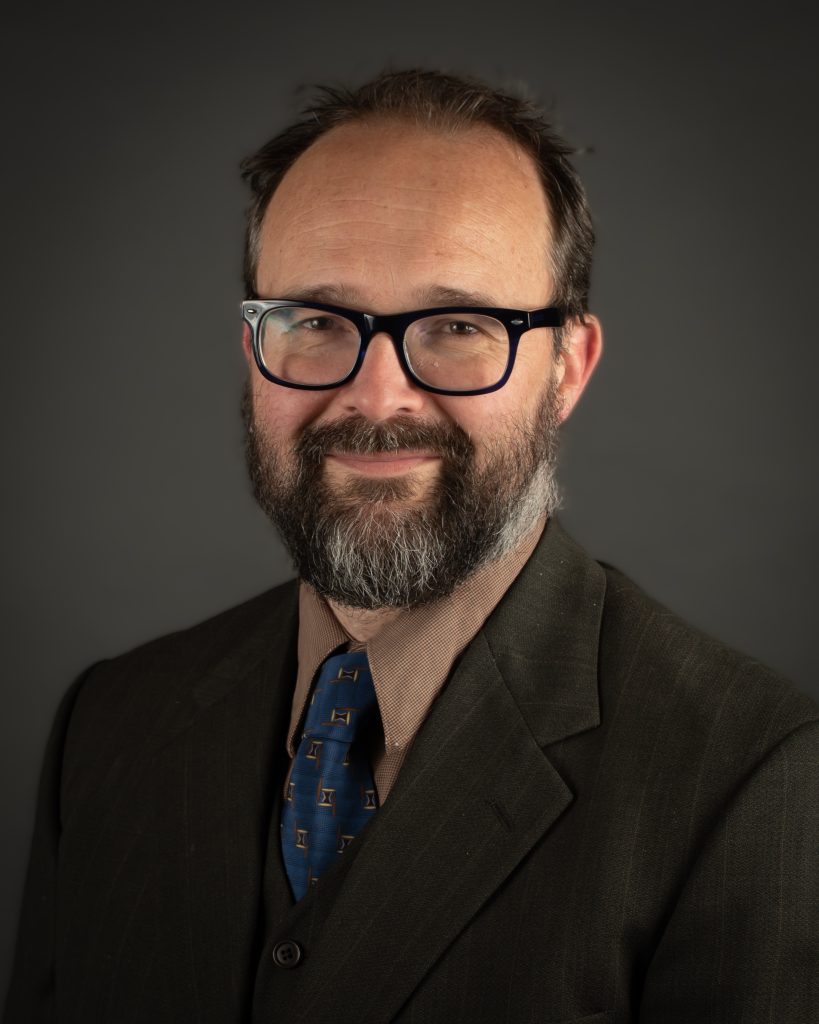Prior to law school, Joshua Lollar, 2L, spent time in a seminary in New York before heading back home to Lawrence to serve as a priest in an Eastern Orthodox parish. However, his memories of visiting Green Hall when his mother was a KU Law student led him to enroll in KU Law himself after 10 years of priesthood. Now, in his second year of law school, Lollar is looking toward a new future in law, beginning with an internship through KU Law’s Judicial Field Placement program.
The Judicial Field Placement program connects law students with federal and state judges. Under the guidance of a judge, law clerk or staff attorney, interns perform research, draft documents and observe courtroom proceedings to expand their knowledge of how our court systems operate.
Lollar, currently interning with the District of Kansas, shared his experience in a Q&A session.
Can you describe where you’ve been working and what kind of work you’ve been doing while in the program?
I am working for the Honorable Teresa James, a federal magistrate judge for the District of Kansas. For the most part, I do research as assigned by Judge James’s law clerks. Most of this research involves evaluating various motions filed by parties to civil suits. I also occasionally observe scheduling conferences and pretrial hearings.
Are there any specific skills that you have developed or improved through this program?
I have grown as a researcher and a writer in Judge James’s chambers. I usually get immediate feedback on my legal analysis from the law clerks and this has been a wonderful part of the internship. I also want to say that the lawyering program at KU Law prepared me very well to jump right in and start doing meaningful work for the court.
How do you think this experience will impact the rest of your time in law school?
Developing my skills of legal analysis and writing during this internship will help me to absorb what is going on in classes. Observing and participating in the work of the court also gives me a good sense of context for much of what we learn in the classroom.
What has been your favorite part of working in your field placement?
I have most enjoyed working on real cases within the collegial and collaborative environment of Judge James’s chambers. It is an honor to contribute to the work of the federal court and to learn from the Judge and her staff.
What would you say to law students considering enrolling in the judicial field placement program?
It should be a priority for anyone interested in any aspect of civil litigation or criminal practice, at the federal or state level. Working on cases as they make their way through the system, observing proceedings in court and interacting with a judge and law clerks gives a unique education in both legal doctrine and in practical skills.
-By Emma Herrman
